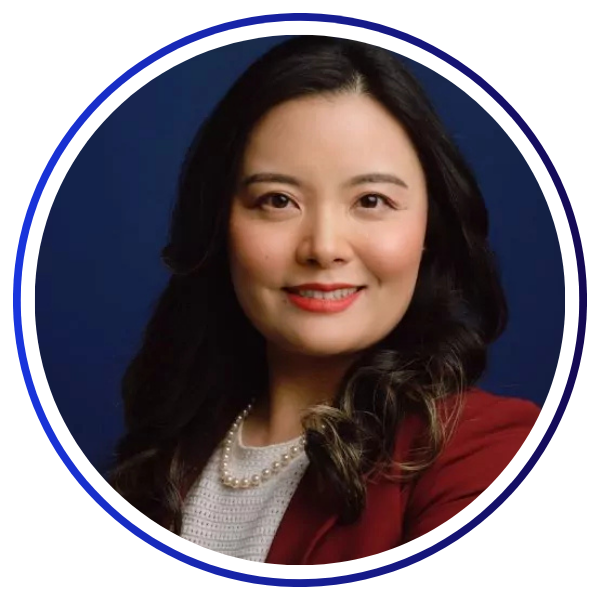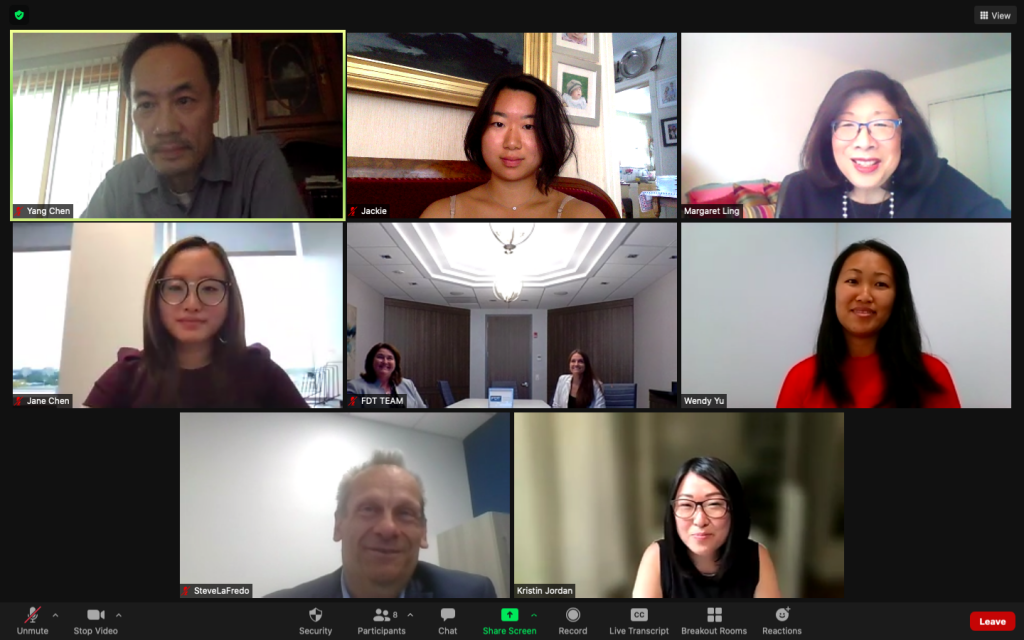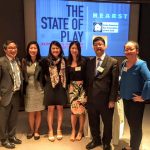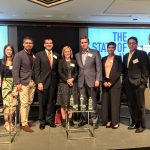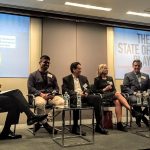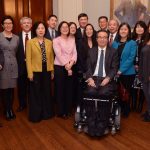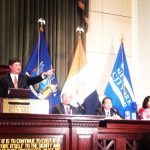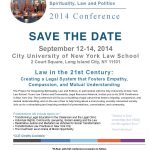For Immediate Release
July 18, 2017
For More Information, Contact:
Brett Schuster, Communications Manager
[email protected], 202-775-9555
WASHINGTON —
Asian Americans have been the fastest-growing minority group in the
legal profession for the past three decades, but they have made only
limited progress in reaching the top ranks of the profession, according
to a new report released today by the National Asian Pacific American
Bar Association and Yale Law School.
The report, titled A Portrait of Asian Americans in the Law, is the first-ever comprehensive study of Asian Americans in the legal profession.
According
to the study, there are over 50,000 Asian American lawyers today,
compared to 10,000 in 1990. Asian Americans comprise almost 5 percent of
lawyers in America and roughly 7 percent of law school enrollment.
Asian Americans are the largest minority group in big law firms, but
they have the highest attrition rates and the lowest ratio of partners
to associates.
Asian
Americans comprise 3 percent of federal judges and 2 percent of state
judges, compared to nearly 6 percent of the U.S. population. Only three
out of 94 U.S. Attorneys in 2016 were Asian American, and only four out
of 2,437 elected district attorneys nationwide in 2014 were Asian
American.
The
two-year study — authored by California Supreme Court Justice Goodwin
H. Liu, recent Yale law graduates Eric Chung, Xiaonan April Hu and
Christine Kwon, and Yale law postgraduate associate Samuel Dong —
included a dozen focus groups and a national survey of over 600 Asian
American lawyers.
The
survey revealed that Asian Americans identify lack of access to mentors
and contacts as a primary barrier to career advancement. They also
report being perceived as careful and hard-working, but not assertive or
creative. “Whereas Asian Americans are regarded as having the ‘hard
skills’ required for lawyerly competence, they are regarded as lacking
many important ‘soft skills,’” the study found. More than half of the
Asian American lawyers surveyed said they “sometimes” or “often”
experience implicit discrimination in the workplace.
“Our
study shows that Asian Americans have a foot in the door in every
sector the legal profession,” said Justice Liu. “The question now is how
wide the door will swing open. Despite much progress, Asian Americans
still face significant obstacles to reaching the leadership ranks.”
“The
Portrait Project shines a light on the obstacles and challenges faced
by Asian American lawyers every day,” said Cyndie M. Chang, president of
the National Asian Pacific American Bar Association. “While incredible
strides have been made over the past 25 years, much work remains to be
done to push past the stigmas and assumptions associated with Asian
Americans. The insights gleaned from this report will unquestionably lay
the groundwork for the road ahead.”
“This
project is timely and important — a must-read for anyone who teaches or
practices law,” said Heather Gerken, dean and Sol & Lillian Goldman
professor of law at Yale Law School. “Justice Liu is a trailblazer, and
it’s a testament to him that he is trying to ensure that other Asian
Americans have a chance to pursue their dreams going forward.”
“This
path-breaking project literally changes the face of Asian American law.
For too many centuries, Asian Americans have been the objects, not the
subjects, of American law: victims and litigants, not activists,
lawyers, or judges,” said Harold Hongju Koh, Sterling professor of
international law at Yale Law School and former legal adviser of the
U.S. Department of State. “This indispensable report finally provides
the facts behind the stereotypes, the deeply felt feelings behind the
faces.”
“The
Portrait Project provides important and necessary data on the advances
and areas for further improvement for Asian Americans in the legal
profession,” said Michelle K. Lee, former undersecretary of commerce and
director of U.S. Patent and Trade Office. “Much progress has been made,
but much work remains ahead. Particularly noteworthy are the
differences highlighted by the data along gender lines, which illustrate
the challenges faced by Asian Americans in the legal profession are
even more pronounced for Asian American women.”
“This
first-ever study of its kind is significant not only for its breadth
and the insights it provides on the so-called ‘bamboo ceiling’ in the
legal profession, but also because it provides a roadmap for how Asian
American attorneys can continue to break through and advance within the
profession,” said Ivan K. Fong, senior vice president and general
counsel of 3M, and former general counsel of the U.S. Department of
Homeland Security.
“This
new empirical study is a significant contribution to our understanding
of the challenges faced by Asian Americans in the legal profession,”
said Ajay K. Mehrotra, director of the American Bar Foundation and
professor of law at Northwestern University Pritzker School of Law. “It
is only by first identifying the factors that have impeded the long-term
leadership success of Asian Americans that we can find potential
solutions to this vexing problem.”
“The
Portrait Project has confirmed the existence of the bamboo ceiling. It
also shows that the future success of the Asian American legal community
requires more leadership and mentoring,” said Don Liu, executive vice
president and chief legal officer of Target Corp. “The study will be
tremendously helpful in removing the professional obstacles that exist
for Asian American lawyers.”
“The
Portrait Project not only points out the flaws of the hiring and
promotion system of workplaces toward Asian Americans, but also shows
what Asian Americans can do to succeed,” said Bijal Vakil, partner,
White & Case. “Change requires both mentoring Asian American lawyers
on strategies to effectively navigate the status quo of law firms in a
manner as personally authentic as possible and to continue pressuring
law firm leaders for inclusive leadership.”
For more information, the media may contact Brett Schuster, NAPABA communications manager, 202-775-9555, [email protected]. Questions about the study may be sent to [email protected].
The
National Asian Pacific American Bar Association (NAPABA) is the
national association of Asian Pacific American attorneys, judges, law
professors, and law students. NAPABA represents the interests of almost
50,000 attorneys and over 80 national, state, and local Asian Pacific
American bar associations. Its members include solo practitioners, large
firm lawyers, corporate counsel, legal services and non-profit
attorneys, and lawyers serving at all levels of government.
To learn more about NAPABA, visit www.napaba.org, like us on Facebook, and follow us on Twitter (@NAPABA).
National Asian Pacific American Bar Association | 1612 K St. NW, Suite 510 | Washington, D.C. 20006 | www.napaba.org










